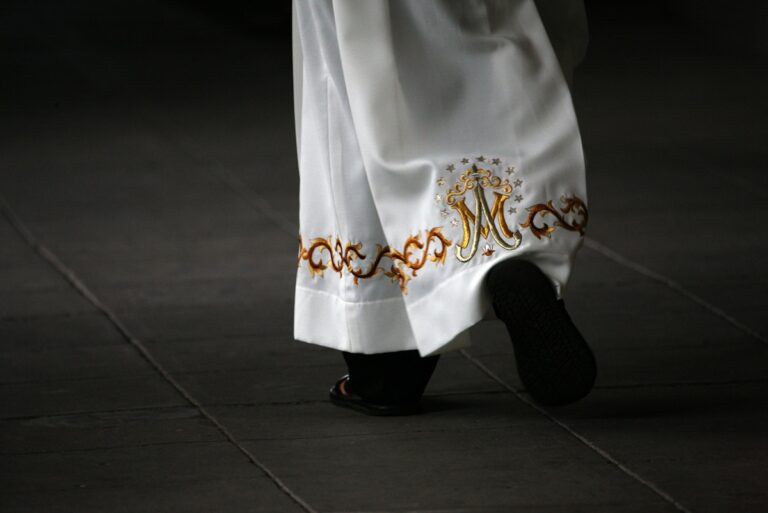Catholic bishops representing more than 800 million people across the Global South, for the first time in history, issued a joint statement demanding an “ambitious implementation” of the Paris Agreement.
“Ten years since the publication of Laudato Si’ and the signing of the Paris Agreement, the countries of the world have not responded with the necessary urgency,” the Catholic Episcopal Conferences and Councils of Africa, Asia, Latin America and the Caribbean wrote in their appeal for climate justice, referring to the late Pope Francis’ landmark encyclical calling for the urgent need to care for the environment.
Laudato Si’ was released in 2015, and is reflected in the preamble the Paris Agreement on climate change adopted by nearly every country in the world in December that year. Part of the agreement requires that participating countries prepare and maintain their own Nationally Determined Contributions (NDCs) to reduce greenhouse gas emissions and adapt to the impacts of human-induced climate change.
The bishops’ appeal, launched at a Vatican press office briefing, demanded that “states implement ambitious NDCs on a scale commensurate with the climate emergency.” The call to action comes months after the US pulled out of the Paris Agreement and ahead of the upcoming COP30.
During the briefing, Cardinal Filipe Neri Ferrão, president of the Federation of Asian Bishops’ Conferences, said, “In Asia, millions of people are already living the devastating effects of climate change, typhoons, forced migration, loss of islands, pollution of rivers.”
“
Fossil fuels belong to the past; the future must be powered by clean, renewable energy.
Bishop Allwyn D’Silva, chairman, Office of Human Development of the Federation of Asian Bishops Conferences
Reaffirming the science of limiting global warming to 1.5° Celsius (3.6° Fahrenheit) “to avoid catastrophic effects,” the statement committed the Catholic Church to several actions, including defending the most vulnerable, strengthening the intercontinental alliance between countries in the Global South, and paving the way for a coalition between the Global North and South.
It urged wealthy nations to pay their ecological debt without further indebting the Global South countries and called for nations to phase out fossil fuels while promoting economic regrowth. It also demanded protection for Indigenous peoples, ecosystems and impoverished communities, including vulnerable groups such as women and youth.
The 34-page appeal said climate finance needs to be transparent and directly delivered to vulnerable communities. It also called on development banks and financial institutions to not invest in fossil fuels or extractive projects.
“It is seriously contradictory to use profits from oil extraction to finance what is presented as an energy transition, without any effective commitment to overcoming it,” the statement read. “It is essential to denounce all attempts to financialise nature,” which turns “elements of creation” such as forests and rivers into “commodities subject to the logic of profit,” it said.
In a press release, Bishop Allwyn D’Silva, chairman of the Office of Human Development of the Federation of Asian Bishops Conferences, said, “Fossil fuels belong to the past; the future must be powered by clean, renewable energy.”
This story was published with permission from Mongabay.com.

